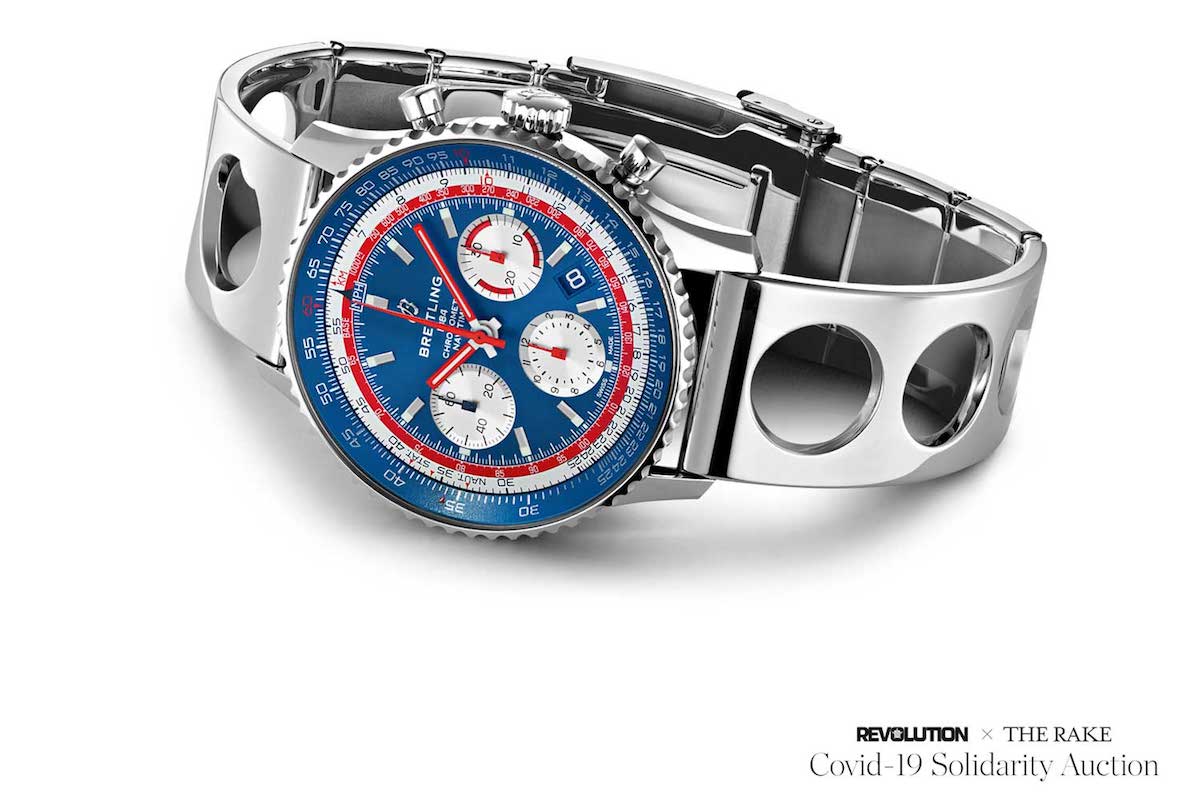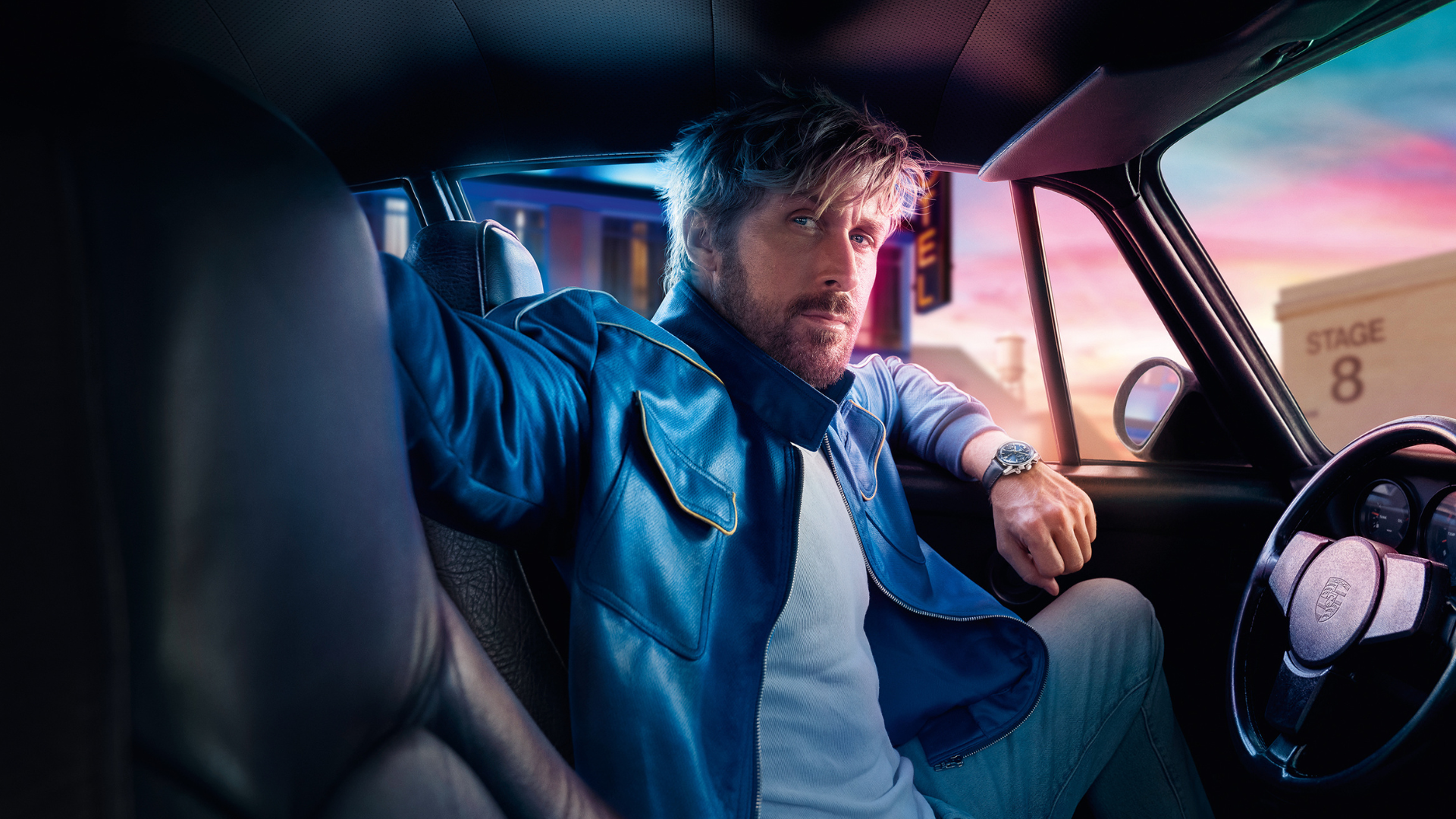'We had to be more relevant... We were big and bold and loud.' Breitling's Georges Kern Wisdom
If a watch C.E.O.’s obligation is towards baby steps and cautionary cunning, Georges Kern — who has turbo-charged Breitling’s personality and profits in half a decade — didn’t get the memo.

Some watch-brand chief executives streamline operations, freshen up the e-commerce strategy, and make the right noises about sustainability. Since joining Breitling in 2017, Georges Kern has overhauled the brand’s entire personality, beefed up its sustainability credentials, and doubled its turnover, in the process creating a company — “a generalistic manufacturer”, as he puts it — that now struggles to keep up with demand.
Having studied political science in Strasbourg, and later business administration at Switzerland’s University of St. Gallen, Kern, the son of a French mother and German father who now holds German, French and Swiss passports, cut his commercial teeth in a prosaic realm — a multinational food conglomerate — before moving into haute horology and rocketing through the ranks at TAG Heuer.
Having joined Richemont and played a key role in the integration of A. Lange & Söhne, Jaeger- LeCoultre and IWC Schaffhausen into the stable, he became the luxury behemoth’s youngest C.E.O., aged 36, when he took the helm at IWC. Between all of this he’s found time to produce Mon Chien Stupide, a French comedy film based on a cult novel.
A living, breathing testimony to the merits of revolution over evolution — of derring-do over cautious, incremental change — Kern’s touch is appearing more Midas-like with each passing year. We found him — unsurprisingly, given his career trajectory to date — in a typically ebullient and congenial mood. With a new batch of Avenger pieces set to add further sparkle to his industry reputation, here is a man who is taking a “good-mood brand”, as he references it, into even happier territory.


Many said at the beginning, when I made all the changes, that I’m going to kill the brand. The watch community can be very opinionated. They can be very strict and, in a way, fundamentalist in their thinking. Which is good. But at the end of the day, I’m the C.E.O. — and, by the way, I have money invested in this company — and I have to make the decisions and do what I believe is right for the brand and look to the future. Five years ago we had this recent Breitling history — 30 years of loud pilot’s watches, a little bit macho. Today we have a compact brand, one in which we have the heritage output with the Premiers, the Top Times, then we have the more modern Breitling, in particular with the Avenger or even the Navitimer.
What I always said to my team, when we were criticised five years ago, was: “Listen, nobody has a crystal ball, so nobody knows if they are right or we are right. But you cannot argue with success — so, to use a football analogy, let’s score goals and let’s win games. And if we win, there will be silence because we were right. And we’re winning.


We had to become more relevant. We were big and bold and loud. But the brand hadn’t been growing for years. We’ve now defined our design style more clearly. You see it in the boutiques, the products, the advertising. We’ve clearly redefined our values as being casual, approachable, sustainable. In that process we’ve also segmented our lines, but always based on the history of the brand.
We haven’t reinvented the wheel — we’ve taken what was already there, and it would have been stupid not to. Other brands would kill to have what we have, but we’ve modernised and repackaged it in a way which is contemporary and appealing for the client of today.
Like making movies, running a watch brand is storytelling. I’ve been confronted with producers, directors, actors my whole time in the watch industry because you have product placements. So you meet these people, and you realise that it’s a different technique at the end of the day but it’s very close. It’s about creating emotion, it’s about producing things right or wrongly. Are there contradictions in the scripts, in the story you’re telling? When I did my first movie, it took us two years to write the script because it has to work. And it’s the same when you tell the story of your brand. Then it’s a question of how well are you in producing it? How good is the director or, in our case, the designer? How can we implement an idea in the script in the right way? It’s very similar.


We must stop thinking in terms of silos. Everything is interconnected, because our clients are also going to watch a Manchester City game, or to an art gallery, or to buy a car. We compete with tourism, with cigars, with concerts, with everything. And we have to include everything in our thinking.
Who is using diver’s watches for diving? Hardly anybody. Who depends on a tachymeter today? Or on anti-magnetic cases? All these were functions created in the 1940s, fifties, sixties with a purpose, but today, with advanced technology, they are not as useful any more, but still have an important role. People still want the functions because they want the look and the dream linked to pilot’s watches and diver’s watches.
The new Avengers models are much more sophisticated than the previous ones, more chic. We’ve worked on many details: the crown, the pushers, the finishing, the colours, new materials like scratch- resistant ceramic, which we’ve used for the case and bezel of the new Avenger Night Mission chronograph. It is a real evolution. [With these novelties] the Avenger remains a bold watch, but I think it fits more in the overall sports-chic appeal of the brand. Our values and design codes, our terms of expression, have changed in the last few years; when we redesigned the Avenger, it had to fit this new set-up.




You don’t respond to needs, you create needs. It’s very different. I worked with fast-moving consumer goods in my previous life, and we responded to needs — here we create them. We need to define and impose our style in the industry.
Today people buy a style, an identification, a lifestyle. When I started in the watch industry, the fundamental element was the movement and the design and then the brand. This is because you don’t read time on a watch as you did 20 years or 25 years ago. So you wear a piece of art, a piece of self-identification on your wrist; a lifestyle.
Quality of movement should be a given. When you buy a Hermès bag, you don’t ask about the quality of the leather. When you buy a watch in our price category, quality in the house movement must be a given.
Some things about this industry haven’t changed for 200 to 150 years, but that doesn’t mean you have to be dusty, old and outdated. You must use modern tools to communicate a product which, from a technological point of view, hasn’t changed in 250 years.
Franco Cologni [who appointed Kern to the IWC role] was my mentor. I loved him dearly. Nicolas Hayek introduced me to him. I met him, he hired me, and we had a great time. I learned a lot from him. He was initially a theatre critic — a very cultivated man. I learned a lot in terms of a ‘helicopter’ understanding of what a brand should and can be. [Former IWC director] Günter Blümlein was a different person. One Italian, one German. Günter was an engineer, a technician: a very disciplined gentleman. I worked with him only for roughly eight months because he died of cancer. A lovely man with a good heart.
Read the full story in Issue 91, available now.





